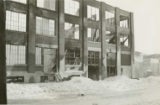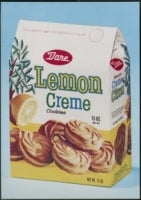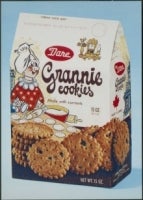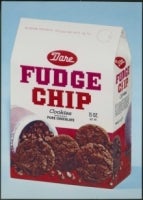Dana Porter Library, first floor
University of Waterloo Library
Waterloo, Ontario N2L 3G1
519-888-4567 x42619 or x42445
Post WWII Economic Boom
After facing stagnation in the Depression years, Doerr bought the Howe Candy Company in 1942. The Canadian economy had been struggling and production stagnant for years before the Second World War began. Doerr was finally in the position to invest in the company again. The Howe factory purchase saved Doerr from destruction in 1943 when their Kitchener plant burned down. They were able to move their ingredient rations to the Howe factory in Hamilton and maintain their production capacity. This allowed them to fill the increasing demand for foodstuffs caused by the war.
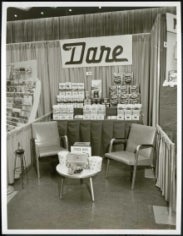 With increasing demand in the food industry, more products were flooding the North American market. The war industries had developed manufacturing and increased efficiencies not only for Doerr, but for their competitors as well. The Canadian economy had grown and benefitted from the war and war industries. Additionally, the returning soldiers and subsequent baby boom grew the middle class and presented Doerr with a new target market for packaged cookies and candy.
With increasing demand in the food industry, more products were flooding the North American market. The war industries had developed manufacturing and increased efficiencies not only for Doerr, but for their competitors as well. The Canadian economy had grown and benefitted from the war and war industries. Additionally, the returning soldiers and subsequent baby boom grew the middle class and presented Doerr with a new target market for packaged cookies and candy.
Doerr responded accordingly. In 1941, as the market was growing across Canada, the company and family name was changed to Dare in order to appeal to a wider audience. Their product line was expanding and cellophane packaging was used so consumers could see exactly what they were buying. The Dare sales force expanded; they were selling to larger stores and larger geographic areas. Product manuals were provided to ensure the salesmen were familiar with the product offerings.
In 1954, cookie packaging was changed forever with Dare’s innovative tin-tie packaging, which would become the industry standard. Packages and displays were brighter and became closely linked with the brand itself. Dare’s new marketing focus allowed them to remain profitable in an increasingly competitive market.

